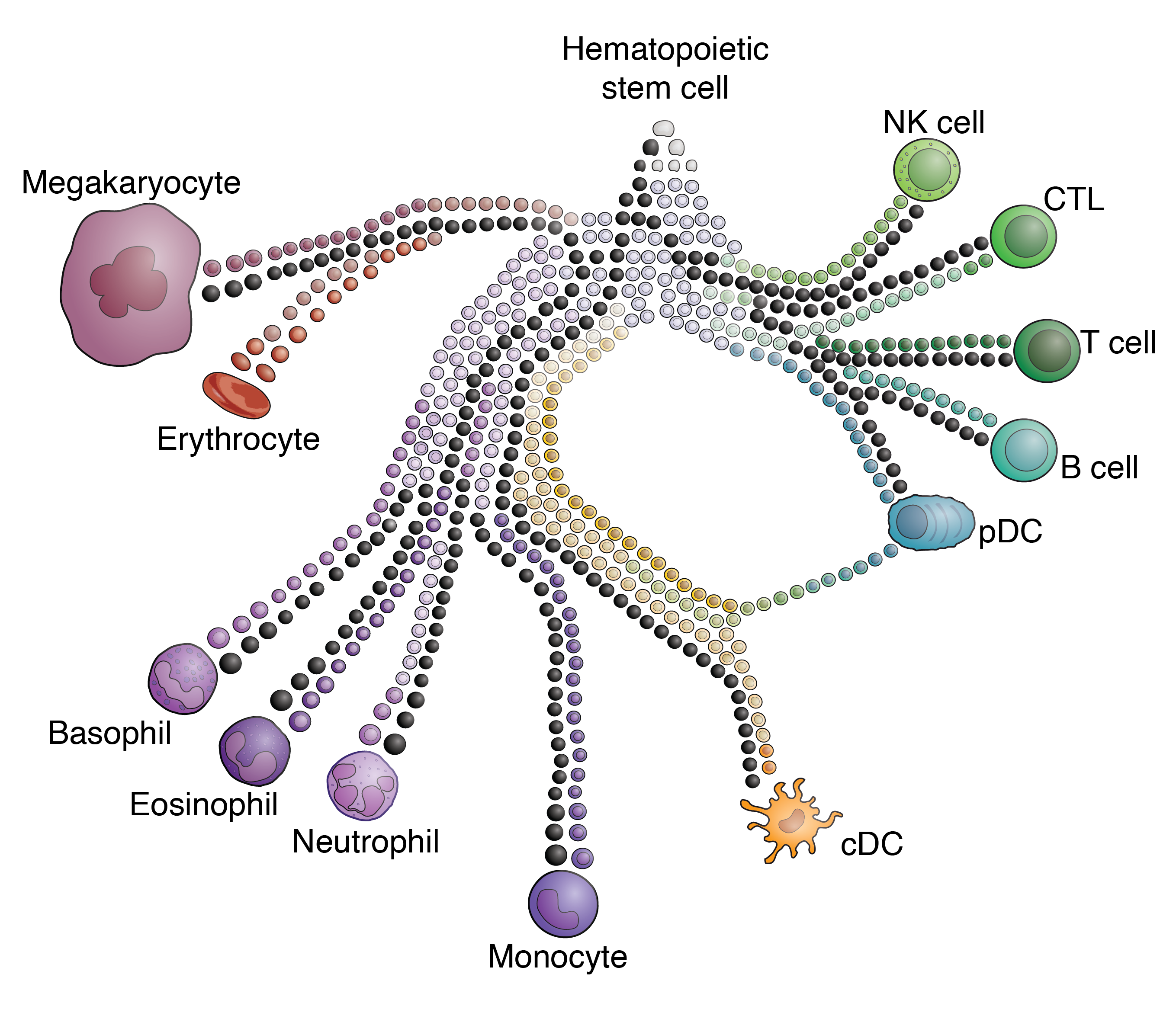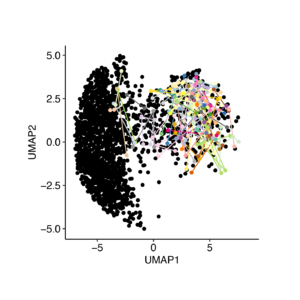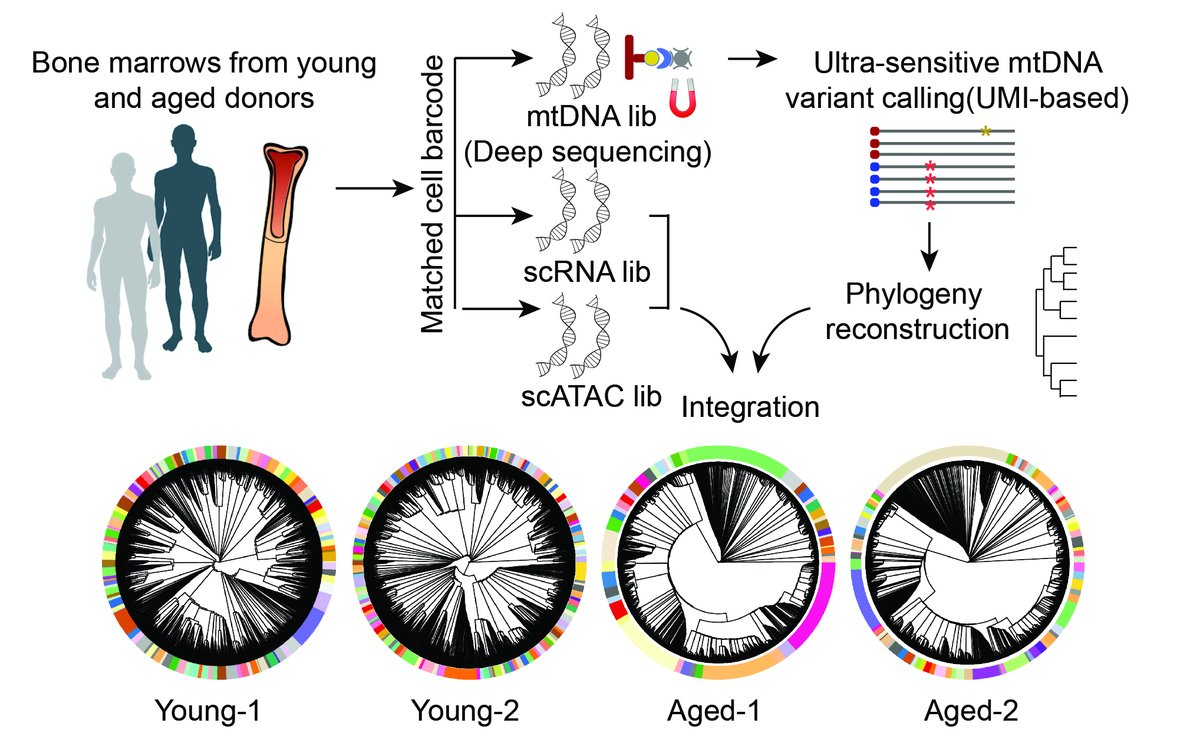Welcome to the Van Galen Lab
Exploring the Frontiers of Hematopoiesis and Leukemia Therapy Using Innovative Technologies and Bioinformatics
At the Van Galen Lab, we are pioneering investigations into the fundamental mechanisms that govern blood formation and the development of blood cancer (leukemia). Our work delves into the molecular mechanisms sustaining the human blood system, focusing on stem cell biology, immune cell function with age, and leukemia’s evolution. We challenge biological paradigms by integrating cutting-edge sequencing technologies and computational innovations. The goal is to design new therapeutic strategies and leverage our discoveries for health improvement.

Our journey begins with the aging of hematopoietic stem cells (HSCs). These stem cells replenish the immune system by generating as many as a trillion cells per day of the myeloid, lymphoid and erythrocyte/megakaryocyte lineages, but their function declines with age. We are delving into the mysteries of clonal hematopoiesis and exploring strategies to reverse the deleterious consequences of inflammation. This research promises to shed light on the intricate processes of aging and transformation in HSCs.
Image adapted from Guilliams et al., Immunity 2018.
Acute myeloid leukemia (AML) is one of the most deadly cancers, and a major goal in the lab is to discover improved therapeutic options for AML patients. These studies include new combination therapies that target protein translation and apoptosis, with promising results showing drug synergy in mouse models.
If AML patients are able to receive bone marrow transplantation, it increases their chance of survival due to an anti-tumor immune response from the donor cells. In this context, we are mapping the landscape of T cell receptor (TCR) diversity, offering insights into immune system regeneration and the design of interventions to enhance transplant outcomes.
Image shows T cells (symbols) connected by common TCR sequences; from Sariipek et al., American Society of Hematology 2023.


Technologies are rate-limiting in our understanding of complex biological systems. We develop procedures to investigate gene expression, epigenetic states, DNA mutations, clonal lineages, T cell receptors, and immunophenotypes of rare cell populations and individual cells (US Patents). We apply these methods to learn about blood and immune regulation, including the first comprehensive atlas of AML cell heterogeneity that is widely used as a reference.
Image from Weng et al., Nature 2024.
At the Van Galen Lab, we’re not just advancing the frontier of hematopoiesis and leukemia research; we’re also dedicated to building a diverse and vibrant scientific community. By welcoming undergraduate students from varied backgrounds, we offer them a chance to participate in rigorous scientific research and networking, preparing the next generation of biomedical leaders. Join us in our quest to push scientific boundaries while fostering an inclusive and supportive environment for researchers at all levels.









